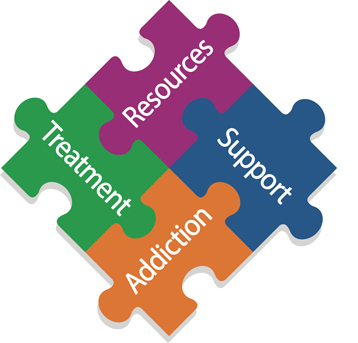Supervised Medication-Assisted Treatment can reduce withdrawal symptoms in recovery.
Recognizing Dependency Treatment: Exploring Efficient Programs for Alcohol Addiction Healing and Mental Wellness Assistance
Starting the journey toward healing from alcoholism includes a comprehensive method that attends to both the physical and emotional elements of dependency. Mental Health Treatment. Clinical cleansing serves as the foundational step, safely managing withdrawal signs and symptoms under professional supervision. Simultaneously, psychotherapy and medication-assisted treatments are customized to minimize the underlying mental health issues, typically linked with addiction. This twin approach not only maintains the individual however additionally sets the phase for talking about the unification of alternative therapies and assistance systems necessary for lasting soberness.

The Function of Clinical Detoxification in Managing Alcohol Withdrawal
Clinical cleansing plays a critical duty in the administration of alcohol withdrawal, acting as the initial action in the journey towards recuperation. This process thoroughly monitors and treats the intense physical signs of withdrawal that happen when a specific quits consuming alcohol. The main aim is to maintain the person physically and mitigate potential health and wellness risks connected with withdrawal, such as seizures and delirium tremens.
Physician typically carry out medications to alleviate symptoms, handle pain, and prevent issues. The controlled setting ensures safety, addresses dietary deficiencies, and prepares people for the following stages of addiction therapy. Successful detoxification is critical, as it develops the structure for more restorative treatments, focusing on lasting recuperation and regression prevention.
Psychiatric Therapy Methods for Twin Diagnosis Treatment
Adhering to the stablizing offered by medical detoxification, psychiatric therapy becomes a crucial component in treating individuals with a twin medical diagnosis. Cognitive Behavior Therapy (CBT) is generally utilized to deal with maladaptive thinking patterns, assisting clients comprehend and manage their behaviors and feelings effectively. Dialectical Behavior Modification (DBT), which emphasizes the growth of coping abilities to handle tension, control emotions, and improve relationships, is especially beneficial. Integrative methods, combining elements from different healing methods, dressmaker treatment to individual demands, boosting the effectiveness of twin diagnosis monitoring. Via these psychotherapeutic methods, people obtain insights into their addicting behaviors and psychological health and wellness issues, fostering a holistic recuperation process and substantially improving their high quality of life.

The Relevance of Medication-Assisted Therapy (MAT)
MAT utilizes FDA-approved medications, such as naltrexone, buprenorphine, and methadone, to stabilize mind chemistry, block the blissful impacts of alcohol, and relieve desires, paving the way for a lasting recuperation. By sustaining the biological basis of dependency, MAT addresses the comprehensive wellness needs of people, assisting in enhanced end results in recovery programs.
Integrating All Natural Therapies Into Alcoholism Healing
Although Medication-Assisted Therapy (FLOOR COVERING) is critical, incorporating holistic therapies can dramatically boost the healing procedure for those battling alcohol dependency. All natural therapies encompass a variety of non-medical healing techniques that concentrate on recovery the mind, body, and spirit. These might include yoga, meditation, acupuncture, and art therapy. Each of these practices intends to improve mental health, lower stress and anxiety, and boost total wellness, thereby supporting the emotional and emotional facets of healing. By including such treatments, therapy programs can offer a more detailed approach that not only resolves the physical symptoms of addiction however additionally cultivates internal tranquility, self-awareness, and emotional resilience. This combination helps people develop much healthier coping mechanisms and a more powerful structure for long-term soberness.
Navigating Assistance Systems and Neighborhood Resources for Continual Recovery
After addressing the individual's alternative demands in alcohol dependency recovery, focus needs to additionally be offered to substance abuse recovery program outside aspects that contribute to sustained sobriety. Assistance systems and area resources play pivotal functions in this phase. Efficient healing programs highlight the value of developing strong networks, which can consist of support groups like Alcoholics Anonymous, family participation, and healing training. Neighborhood resources such as sober living setups and local mental health solutions give sensible support and a safeguard during at risk times. Engaging with these resources urges liability, decreases feelings of isolation, and enhances strength versus regression. Sustained recovery is therefore seen not only you can check here as an individual's trip but as a community-supported process, promoting a setting where regular recovery is supported and commemorated.
Conclusion
Finally, effective alcohol addiction healing programs encompass a diverse technique that includes medical detoxing, psychotherapy, and medication-assisted therapy. Incorporating holistic treatments and leveraging assistance systems are necessary for dealing with both physical and mental wellness difficulties. Such extensive care not only aids manage withdrawal symptoms but likewise heroin rehab centers near me supports long-term sobriety and psychological well-being, thus enhancing an individual's capacity to lead a healthier and more meeting life post-recovery.